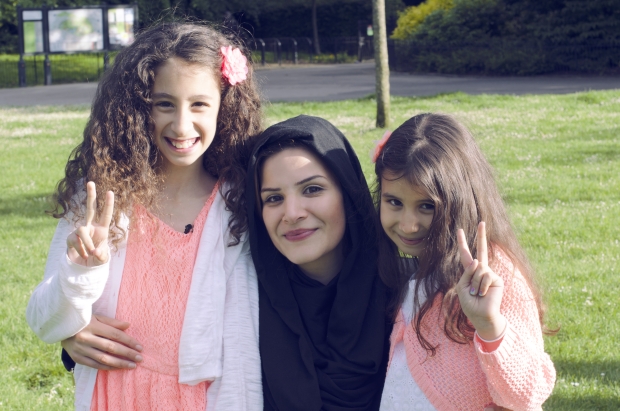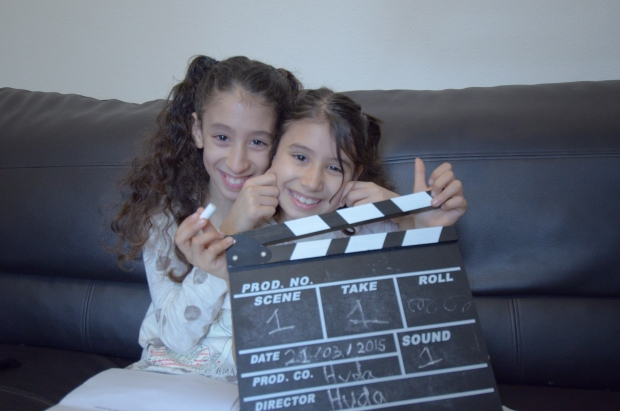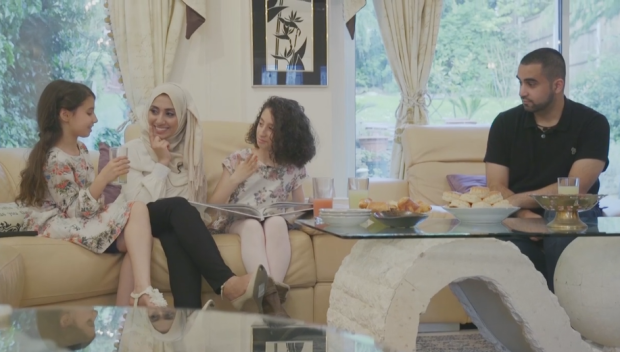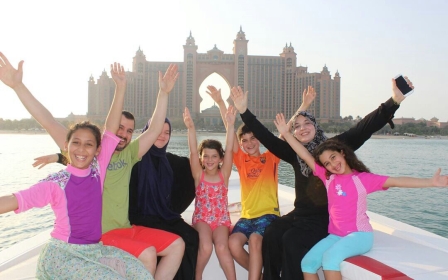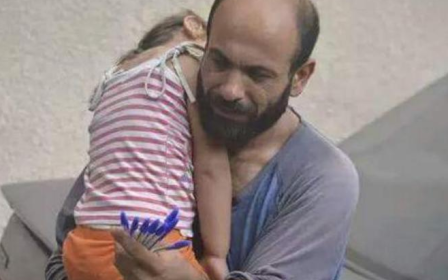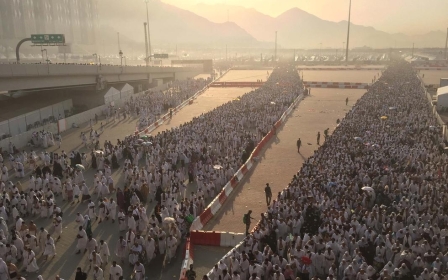'Why can't I be a Sushi?' Making sense of the Sunni-Shia divide
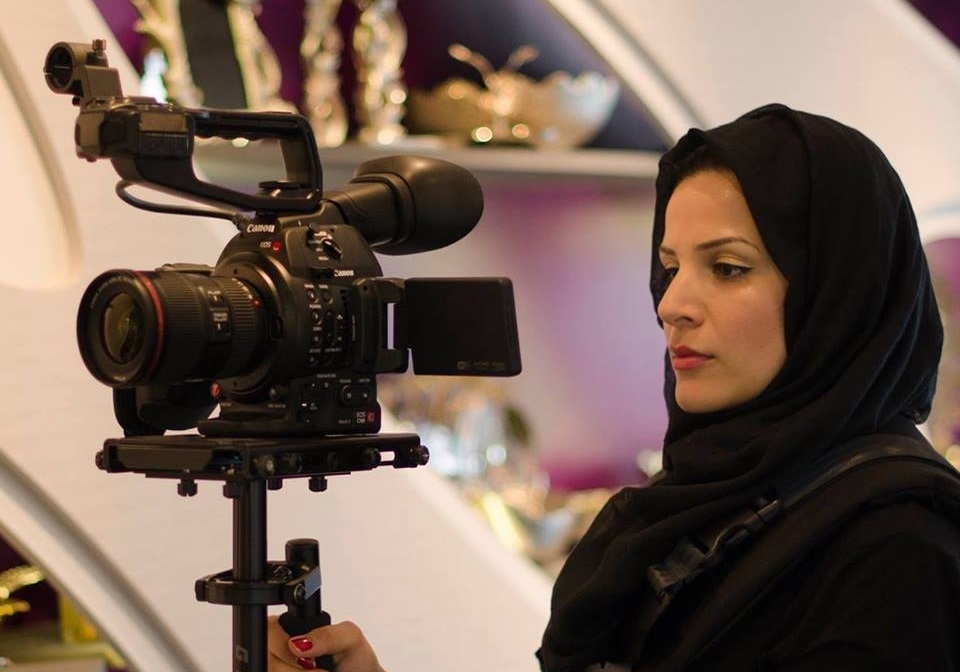
As the voices around them grew louder and angrier, the decision was quickly made to get the two young girls out of the park.
This was not an ordinary playground squabble but a heated debate amongst a group of adults, sparked by the two girls themselves.
Sisters Nimah, 10, and Sofia, eight, were taking part in a documentary called Why Can't I be a Sushi? Sushi, in this context, is not a reference to a popular Japanese seafood, but a term coined by combining the terms Sunni and Shia, Islam's two largest groups.
With Sunnis making up around 90 percent of the global Muslim population and Shias making up about 10 percent, there has been a major ramping up of sectarian tension between the two in the last few years. It is a phenomenon exacerbated by wars, political tensions and geopolitical manoeuvring in the Middle East.
Trying to make sense of the increasingly acute Sunni-Shia schism, British-Iraqi documentary maker Hoda Elsoudani was exploring the issue using the two young girls as the stars and hosts of her investigation.
Over the course of several weeks, the two girls travelled around the UK speaking to scholars, historians and members of the public about what they thought of the sectarian division. This is what led them to visit Speakers Corner, Hyde Park's famous soapbox known for its loud public debates. The reaction they received - loud voices raised in argument - was of no surprise to Elsoudani who said it was "expected" when raising the sensitive subject in the current tense climate.
A labour of love
The documentary has been an intense labour of love for Elsoudani. Raised in the UK, the 30-year-old filmmaker was born to Iraqi refugee parents fleeing war, and she has always been fascinated by issues pertaining to identity.
Elsoudani self-identifies as a "Sushi" not because one parent is Sunni and the other Shia, she says both were "just Muslim," but in the sense that she does not want to be labelled as either.
"I was raised not to belong to any sect or group, but everyone you meet wants to put you in one box or another. I want to take the best from both worlds and so self-identify as a combination of both."
This is a concept, she says, that some Muslims find difficult to grasp and can be quite hostile about. One point made by the people interviewed again and again throughout the film is that you must choose one identity and cannot adhere to both; the very concept Elsoudani is challenging.
In addition to her personal connection to the topic, Elsoudani was also motivated to tackle this sensitive subject after "seeing what is happening everywhere: in Saudi Arabia, in Yemen, Iran, Iraq... it's like everywhere you go there's an increasingly hostile way of thinking about the 'other' group. I don't understand why that is. In the Quran it says 'there is no compulsion in religion' so who are we to force people to either be a Sunni or a Shia?"
A novel interviewing technique
Knowing how sensitive this subject is, Elsoudani found a novel way to approach the issue by employing the device of having two young girls take on the role of joint interviewers in the documentary.
The vast majority of their words were scripted by Elsoudani - she estimates around 90 percent - but the eloquent and charming youngsters displayed a level of maturity and understanding far beyond their years.
Asked how she chose her stars, Elsoudani explains that she was initially planning to audition many children for the roles, but that Nimah and Sofia were the first two she actually spoke to about the project. Daughters of a close friend, she said she could tell immediately that the two sisters were perfectly suited to help her explore the topic and be the faces of the documentary.
"They were really amazing," she told Middle East Eye. "I really don't think this could have worked as well with anyone else."
Not only does this technique of child hosts help break down the issues for newcomers to the subject who may genuinely be unfamiliar with some of the more basic aspects of the division, but it also highlights how important the topic is in that it affects millions of children worldwide, confused by the violence arising from such sectarianism.
The fact that they were speaking to children also seems to have put the interviewees at ease, making their responses more thoughtful and perhaps less terse and defensive than if they had been discussing the issue with their peers.
The experts weigh in
Plagued over the years by the belief that the Shia in particular are often misrepresented, Elsoudani explains that giving them a platform to clarify their beliefs was one of her primary aims. "I have lots of Shia friends and I just feel that people are constantly misjudging them. There are a lot of misconceptions and challenging that was one of my biggest aims. I wanted to address these things and then maybe, just maybe, start to break down some barriers between us all."
To that end, one of the people the girls interviewed was Sheikh Mohammad Saeed Bahmanpour, a Shia scholar.
Asked about the difference between Shiasm and what some Shias practise, he concedes that “in Shiasm, in many areas, yes of course people practise things not approved by Shia scholars”.
He went on to explain that, as with all religious groups, the Shia are not one homogenous religious body and that there are different trends within Shiism.
"There are different groups of Shias as there are different groups in every trend of faith… in Shiasm as well we have had different trends, so we have Twelver Shias, we have Ismailis, we have Zayidis and these are different groups of Shias.”
Even within those groups, he explains, “there are people who are extremists, and there are people who are moderates. There are people who are practising, [and] there are people who are not practising. So we should not judge a faith by the way it is practised. We should judge a faith by the way it is explained by its scholars.”
Asked by the girls as to why not give up on labels altogether, and just say one is a Muslim, he says: “It’s a very nice idea, however, it is not possible. In reality, people are different and when people are different they have to respect each others' differences."
He gives the analogy that you cannot be a human without either being a male or a female. You must be one or the other, but either way you are still a human.
Interestingly, Bahmanpour states that with regards to “Muslims fighting each other in the name of religion... I don’t think the fighting is about religion. The fighting is a political issue which usually is instigated by things which are not really part of religion.” This emphasis on politics is seen as a key factor contributing to the sectarian schism that came up time and again over the course of the documentary.
Points of contention
Although the film does shy away from some of the more sensitive and controversial points of contention between the two groups, such as the question of succession of leadership after the death of Prophet Muhammad or the practice of self-flagellation by some Shias - which most Sunnis balk at - Elsoundani does identify the fact that one issue that seems to have driven an increasingly concrete wedge between the two groups is the practice, by some Shias, of cursing the companions and wives of the Prophet Muhammad. This is a source of great pain and anguish to Sunnis who hold those individuals in extremely high esteem.
To address this point, the girls interviewed Sheikh Arif Abdul Hussain, director of the Al-Mahdi Institute in Birmingham, and asked him if this practice of cursing the companions and wives of the Prophet is in fact religiously prescribed and sanctioned in Shiasm.
“This is a false belief and an innovation," he responds. "How can cursing make a person Muslim?... If cursing brings about bloodshed, animosity, war, hatred, then how can that at all be associated with a religion that is supposed to be revealed from God?”
Asked by Sofia if this practice is therefore an understandable source of division between the two groups, he goes on to say: “At present there are practises that have become religion for both the sects that are causing these conflicts. So for example, Shias feel that they need to maybe defame the Sahaba (companions) and the wives of the Prophet. It is not that it is a part of the Shia faith. Ali (the Prophet's nephew and son-in-law) respected the Sahaba, his contemporaries, they respected the wives of the Prophet."
Finally, when asked if he believes if unity among Muslims is possible, he answers without hesitation, "absolutely, absolutely".
Political or religious division?
Several of the people interviewed, including British politician George Galloway, indicated that the tensions are related far more to politics than theological differences.
Galloway pointed out that intermarriage between Shias and Sunnis was at one point extremely common in Iraq and Syria and is evidence of the fact that there was not always sectarian hostility between the two groups. He argued that "those who wish to destroy" countries like Syria and Iraq, are the ones causing the rift.
"Outsiders who invaded Iraq and occupied it, deliberately widened the differences between Sunni and Shia for their own ends. They wanted to keep Iraqis divided so that they could steal... steal Iraq's oil, steal Iraq's money, it's wealth and it's future. Of course there are differences between Sunni and Shia, and there have always been, but in Iraq people never fought each other [over] these things. In fact, intermarriage with Sunnis and Shias... joining their families together, was very common in Iraq. Much less common now."
Galloway also maintained that the same thing is now happening in Syria. "Those who wish to destroy Syria are making the tension between Sunnis and Shia much worse, and they hope, by dividing the Syrian people, to steal Syria away from them."
A similar point was also made by Dr Anas al-Tikriti, CEO of the Cordoba Foundation. Asked if he agrees that the issue is more political than religious, Dr Tikriti said: “I think that most conflicts, whether it’s between Sunnis and Shias or Muslims and Christians or Muslims and Jews, are political not religious."
"People like to make them look like they are religious because when you say that ‘my argument with you is about who is more religious,’ I will manage to get more and more supporters because most people... they want to be on the side of God. So when you say this fight of mine is religious, a lot of people will come and join… It’s not about religion. It’s ultimately about politics,” he added.
One further point was hammered home throughout the documentary. Again and again, Sofia would ask people: “What drives extremism?” and each time the responses centred around a “lack of education”, “ignorance”, “lack of wisdom” and a “lack of understanding”.
Example of coexistence
The documentary ends with the two sisters meeting a family in which the wife, Dr Yusra Al-Mukhtar, is Shia, and the husband, Al-Hassan Yasin, is Sunni. When asked what that makes their son, the husband, Yasin answered, “I guess it makes him Muslim, which is the way we agreed to raise him. We decided that we wouldn’t want to label him one thing or another."
With regards to their daily lives and how their different beliefs manifest themselves, they responded, “The commonalities are far more than the differences”.
The youngest of the sisters, Sofia, seemed relieved to have met a functional, harmonious and loving mixed faith family saying, “We can finally sleep in peace knowing that such families exist.”
A bond of love and respect is vital
Asked if any of her views on the subject have changed as a result of the filming process, Elsoudani explained that she "saw some really extreme views on both sides," but insisted "I truly believe that people have the right to be whatever they want and that we can all be united in spite of our differences. So no, my views have not changed."
"My overall message is that you should be able to practice your religion however you want to practice it - according to what you believe - but you must still have a bond of love and respect between you and others. How can so many Muslims get along with people from different faith groups and yet when it comes to people from their own faith, but of a slightly different persuasion - they often can't handle it?"
"It's too easy now for both Sunnis and Shias to call the other Kaffirs (disbelievers) and that's really sad and disappointing. It's a form of arrogance, but it breaks my heart."
Despite some nasty emails she has received in response to her film, she says this has not put her off. She focuses instead on those who have welcomed her project and embraced the message, if not of unity, then at least of the urgent need for more acceptance of the "other".
New MEE newsletter: Jerusalem Dispatch
Sign up to get the latest insights and analysis on Israel-Palestine, alongside Turkey Unpacked and other MEE newsletters
Middle East Eye delivers independent and unrivalled coverage and analysis of the Middle East, North Africa and beyond. To learn more about republishing this content and the associated fees, please fill out this form. More about MEE can be found here.


